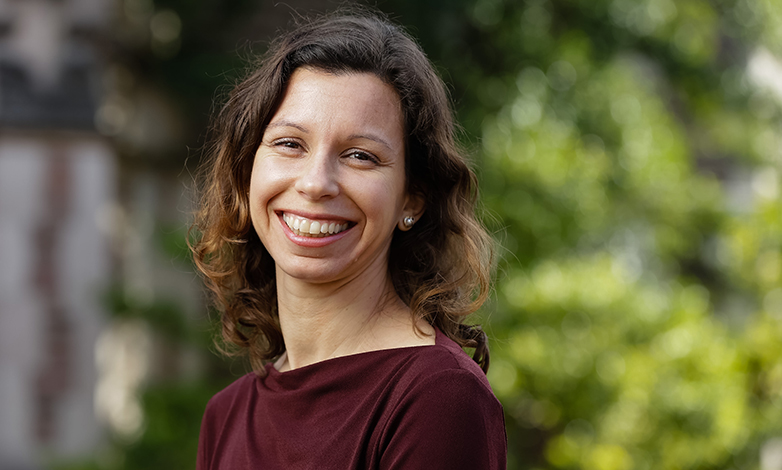Provides ICTS Investigator Valuable Opportunity for Professional Development

The CTSA program provides opportunities for hub members to come together and advance knowledge and progress around various topics. One way this is accomplished is through working groups. Working groups consider and develop solutions around a specific clinical and translational science issue and provide deliverables that fill identified translational gaps.
Ana Baumann, PhD, Research Assistant Professor, Brown School of Social Work, Washington University in St. Louis, and co-Director of the Dissemination and Implementation Research Core (DIRC), recently reflected on her participation in the Dissemination, Implementation and Knowledge Transfer Working Group. Composed of 73 participants from 36 CTSAs, the D&I Working Group (DI WG) was convened in September 2016. After three years of implementing D&I deliverables, the group provided their final recommendations to CTSA leadership in December 2019.
From the onset, the group’s objectives were to: increase awareness of the critical importance of D&I science to the translational science process, promote coordination of D&I efforts across CTSA hubs, and enhance availability of D&I methods and approaches across CTSA settings. The group’s first deliverable was a survey of CTSA hub leaders that revealed a lack of understanding of D&I science was a significant barrier to developing and supporting D&I science activities within their CTSAs.
“D&I is a growing science. The ICTS is one of the few CTSAs that have a D&I core, but that isn’t necessarily the case with other hubs,” commented Baumann. “Frequently D&I activities are embedded in other cores, so it makes it harder to distinguish the science as separate and significant in and of itself.”
With awareness a clear challenge, the working group saw the need for training and developed several deliverables including a national webcast, workshops, a published manuscript and a special issue on D&I for the Journal of Clinical and Translational Science.
The group developed the national webcast, “Dissemination and Implementation Science: What is it and why is it critical to translational science?” on the importance of D&I science to the translational science process. In addition, Baumann worked on developing a tool for tracking D&I consultations across all CTSAs. Titled the Dissemination and Implementation Consultation Electronic (DICE), Bauman and Enola Proctor, PhD, former director of the DIRC and the Center for Dissemination and Implementation at the Washington University Institute for Public Health, initiated this project by compiling existing D&I consultation request tools from CTSAs affiliated with the D&I working group.
By implementing these tactics and various others, the D&I working group feels that their deliverables exceeded original expectations. Currently, they are planning to continue meeting as a discussion group and have their sights set to apply as another working group with new objectives.
Bauman is looking forward to continuing her involvement as part of this new working group. “I gained a lot from this experience,” reflected Bauman. “It was an honor to bring back knowledge from national leaders to WashU. It also made me very thankful for the infrastructure and support that WashU provides. It’s exciting to think of how we leverage that support to continue the science of D&I at WashU and within the greater CTSA community in the future.” Read the Dissemination and Implementation Working Group final report here.